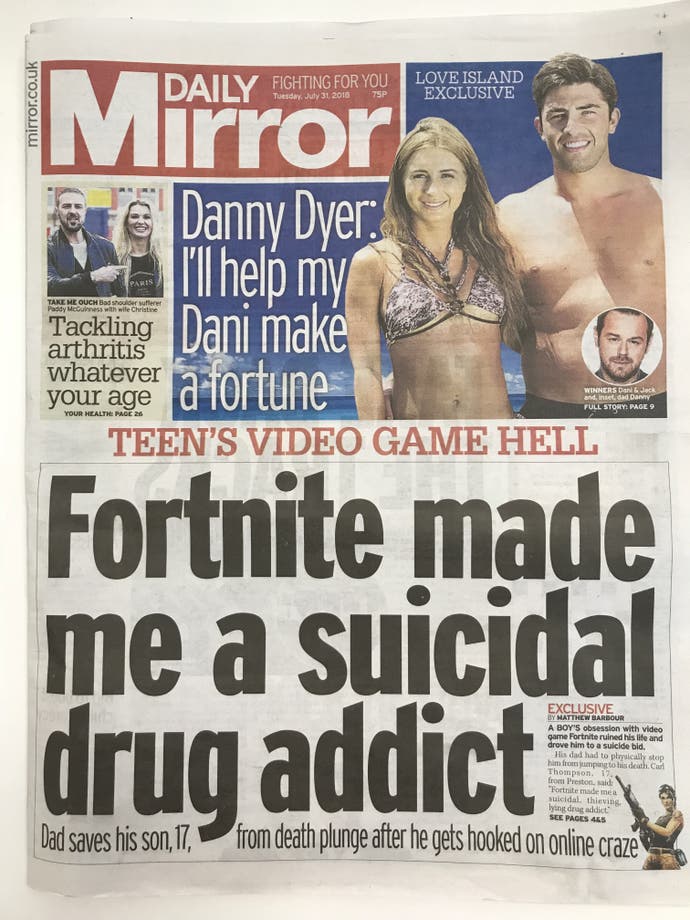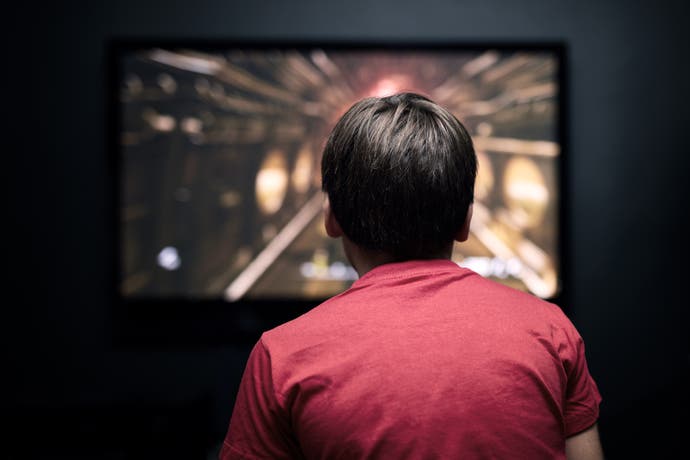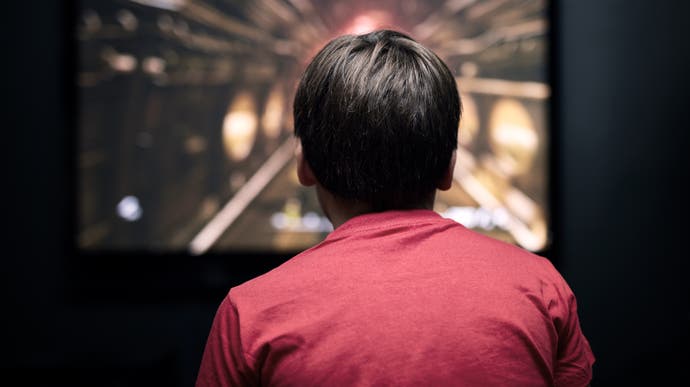Inside the rehab clinics treating gaming addiction disorder
A veteran therapist explains the process.
Since the World Health Organisation classified gaming addiction as a mental health disorder in January 2018, it's been at the heart of an ongoing conversation. About its extent - how many gamers are undiagnosed addicts? - the nature of its treatment, and in some quarters, about its validity as a recognised disorder.
As if that conversation wasn't knotty enough, it's happened in tandem with Fortnite's ascension beyond gaming popularity and into the kind of social phenomenon that's referenced by footballers' celebrations in the World Cup final and, inevitably, vilified by the tabloid media. While the WHO's classification cast previously accepted gaming habits under new scrutiny, front page newspaper headlines like 'Fortnite made me a suicidal drug addict' seem intent on sending gaming to the guillotine before the debate about addiction has really begun in earnest.
There's a danger of these two separate entities - the medical world recognising a new disorder and the tabloid media recognising a new villain for its front pages - becoming conflated in popular consciousness. A danger that we dismiss the notion of gaming addiction out of hand, because of the absurdity of its depiction in tabloid stories. And perhaps even a danger that we see the disorder, like the salacious headlines, as a phase, a 'trending' mental health condition, the causes and effects of which will all die down once the bubble of Fortnite's mainstream relevance bursts. That's a myopic view, and one that fails to acknowledge that gaming addiction was being recognised and treated before the WHO's updated International Classification of Diseases (ICD) last January.

"Like most diagnostic labels," counsellor and psychologist Mike Evans tells me, "gaming addicts have had to source developing specialists in the field." Evans says before the WHO classification in 2018 there were roughly 10 addiction specialists who'd started to gather evidence of gamers' potential to become dependent on their games, and the impact that might have on the personal, social, financial and moral aspects of their lives. He too worked in a clinic that specialised in addiction, and would meet clients for whom gaming had become a problem.
"Quite often I would hear from families that they sensed they were losing their relative to the game, and that the strong family connection they once felt had changed its allegiance to the game.
"They would recall how their relatives' behaviour changed over time, with dishonesty about the amount of time spent gaming becoming a key factor in family disputes."
Dishonesty. There's a crucial distinction here when it comes to diagnosing gaming addiction, because it's tempting to want to put a numerical value on it. An 'hours per week' figure with a clear threshold between enthusiastic hobby and debilitating addiction. But diagnostic criteria doesn't work like that - it's about how the individual's gaming as much as it's about how often, and if they're being dishonest about the time they spend playing that's an indicator of something unhealthy.
In those days prior to WHO's updated ICD, Evans tells me it was "hard for families to find help".
"Because of the novel nature of the presentation, and a lack of understanding from professionals about gaming in general, the social [aspect] of gaming and the impact this can have on socially isolated individuals."
It may still be difficult for people to find help. Diagnosis is still something of a controversial topic among psychologists, and recognition of the disorder's existence is not unanimous in the mental healthcare world. One prominent dissenting voice against the WHO's recent reclassification is Dr Christopher J Ferguson, a psychologist with years of research into gaming behaviour who believes it's a premature move influenced by politics more than science.

But there is agreement, at least, that help should be made available to an individual once they have been diagnosed. "The other positive aspect," says Evans, "is that services then have to upskill themselves in order to provide appropriate assessment and access to services."
But what actually happens when you walk into an addiction clinic for a consultation with a therapist? That first contact, he tells me, doesn't differ significantly to that with a client whose addiction takes a more traditional form - drugs, or alcohol. It begins with speaking about how you view your problem - or whether you acknowledge it as such in the first place.
"Do they acknowledge a dependency, or is there evidence of discounting the problem and any effects it has on their day to day lives?
"Secondly, we want to establish rate and frequency of the dependency, and finally the impact on self - personal social emotional - and others - social, relational, financial, and so on."
This meeting isn't always the individual's idea, though. Of the three younger patients whom he saw during his time at the clinic, two had gone through "what we describe as an intervention prior to admission". Not every teenager stops and holds their moment-by-moment decisions under particularly stern scrutiny, after all.
"This involves close relatives and friends talking openly and honestly about their experiences of the person's dependence, such as loss of relationship or contact, [along with] behavioural and emotional changes and their feelings about this."
These discussions are highly emotionally charged affairs. Once the dust settles, the therapist then presents the treatment options. If everyone decides to go ahead with that treatment, the patient's then admitted to the clinic and a therapist's assigned to them.
The only difference, he says, in the treatment is down to "the therapist upskilling themselves on the culture of gaming and why patients might be prone to escaping from themselves in this way."
That means keeping a personal recovery journal and attending therapy groups twice a day - or rather "engaging in" them as he puts it - an important distinction, one suspects.
"We found a 12-step support group for our patients to attend that was specifically designed for gamers. It is a tough programme, and patients are encouraged to explore their attitudes, thoughts, and beliefs about their addiction and its impact on others."
To an older generation who grew up routinely sneaking extended Game Boy sessions in after a parental-imposed bedtime when they were children, the idea of younger gamers being taken to a clinic for an intervention about their dependency might seem extreme. Who hasn't been secretive about their gaming at some point in their life, particularly when they were younger? Who hasn't at least once played well beyond the point of reasonable boundaries, or skipped a meal to see out a summer transfer window in Football Manager?

The answer, he tells me when I relay these tales of childhood overindulgence, is that at some point I did stop. Obviously I didn't turn my back on gaming altogether, but I stopped taking it to detrimental levels. The same behaviour that we might have indulged in as children, or students with diminished responsibilities and plenty of free time, might give us more pause for thought if we still regularly find ourselves partaking in as adults with a few more plates to spin. I might still go hungry for a couple of hours while I try to secure an 11th hour big money move for Fulham once a year - but after that minor deviation from the norm it's back to making (generally) good decisions about self-care.
As for why some people might be more likely to form an addictive relationship with games than others, that's also up for debate in the mental healthcare community.
"Neuropsychs might tell you there's something wrong with the hippocampus in the brain, and that whatever is causing the dependence has over-triggered the reward centre of it, leading it to release more modulating neurotransmitters.
"Once the dependent item is used," in this case loading up the game, "it floods the reward centre again and it becomes overloaded and unable to regulate the reward mechanism, leading to a hyper-reward sensation for the user."
As for social factors, poor social connections, difficult early relationships or bullying might play a part. Especially, he tells me, in games where "becoming powerful or conquering are prominent features". Off the top of your head, it's hard to think of many that don't place an emphasis on that.
These suggested explanations don't require much mental gymnastics to understand. It makes sense on a primal level to do something as often as possible when you find it makes you feel better. "Patients often feel me this makes perfect sense to them in the early stages of addiction."
However, he's keen to stress that there isn't one common factor that leads people to becoming addicted to gaming: "We're all individuals."
We might only be beginning to understand gaming addiction - members of the public and healthcare professionals alike - but a network of support and treatment already exists for those who feel their habit's become unhealthy. If the tabloid headlines have provided any benefit, phrased as if screamed from the spittle-flecked mouth of a doomsayer who's seen humanity's undoing at Greasy Grove, they are at least making us think about our gaming behaviours, if only to prove them wrong. And if any of us are thinking about it and deciding that it might be time to reach out for some help - a "fresh pair of eyes on it" as he puts it, he recommends GPs as the first port of call. "Patients know there's something different and needing change. They often have lost the power to problem solve at this stage."
The same advice goes for those close to someone who might be dependent on gaming. GPs, helplines, and support groups for family or friends of those with the addiction are all already available.








